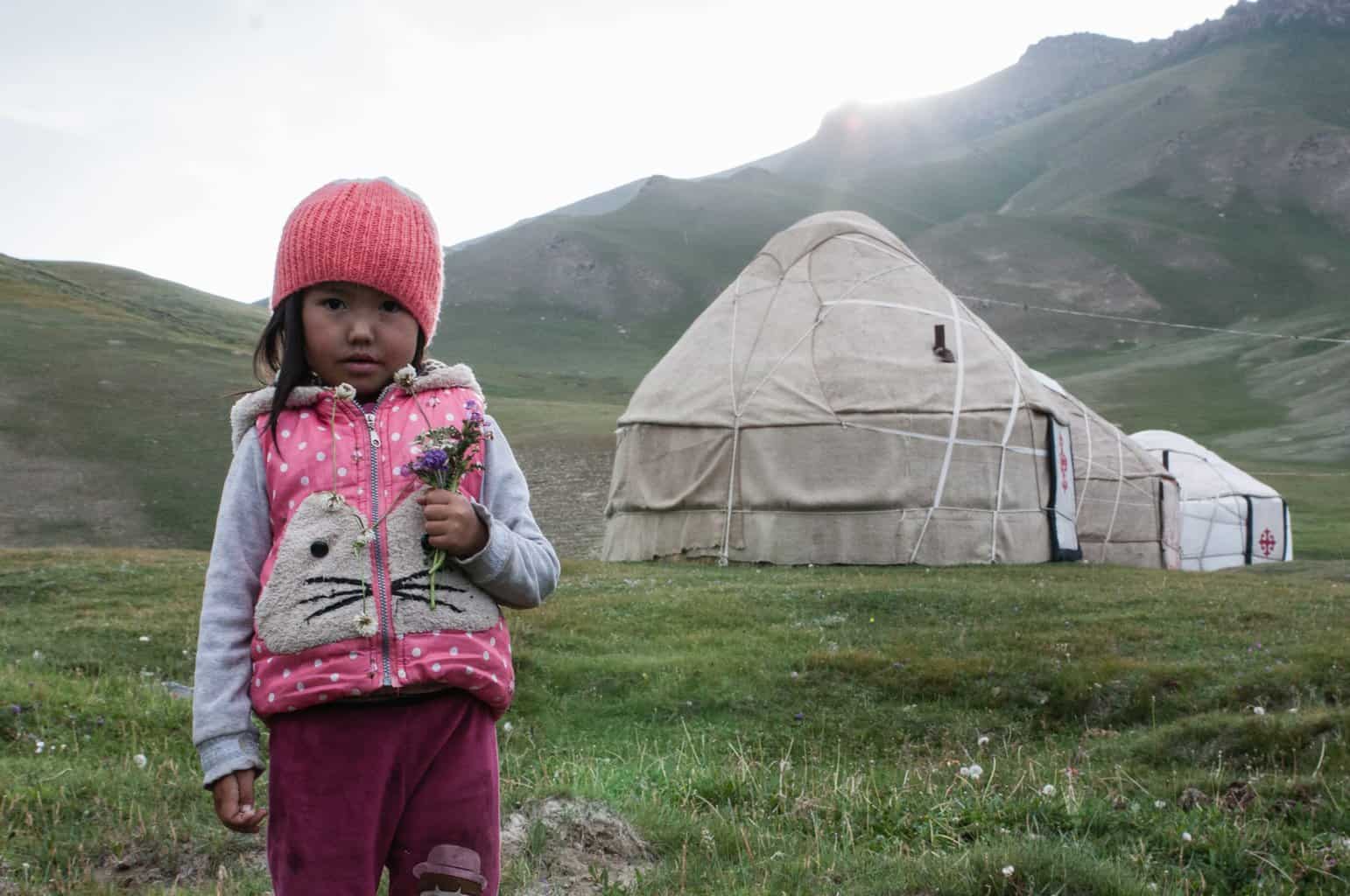Activists and journalists are ‘under siege’ in Kyrgyzstan
This country spotlight refers to data published in 2019. For the most recent data, go to our Rights Tracker.
As the first global initiative to track the human rights performances of countries, the Human Rights Measurement Initiative (HRMI) has both civil and political and economic and social rights data for Kyrgyzstan. All our data is available on our Rights Tracker.
HRMI uses an expert survey methodology to collect data on civil and political rights. To calculate economic and social rights scores, HRMI uses the award-winning SERF index. Read about our Research Credentials here.
‘Anti-corruption activists and journalists in Kyrgyzstan are under siege,’ Eurasianet recently reported. ‘Barely a week passes these days without an assault, threat, lawsuit or arrest.’
The statement followed the attack on January 9 of Bolot Temirov, chief editor of the news website Factcheck. Temirov had been leading an investigation into the mysterious wealth of the wife of former top customs official Rayimbek Matraimov.
The Committee to Protect Journalists has also spoken out against assaults on investigative journalists. ‘Kyrgyz authorities should conduct a swift and thorough investigation into today’s assault of journalist Bolot Temirov, and determine whether it was related to his work,’ urged CPJ’s Europe and Central Asia programme coordinator, Gulnoza Said. ‘Authorities must prioritize journalists’ safety, especially for reporters covering sensitive issues like corruption.’
What do HRMI’s data show?
Below is an overview of HRMI’s human rights report for Kyrgyzstan, as seen on our Rights Tracker:

Kyrgyzstan scored 5.6/10 for empowerment rights, 7.7/10 for safety from the state, and 89.4% for quality of life rights.
HRMI’s scores show that Kyrgyzstan has much room for improvement in all three human rights areas.
Civil and political rights
Empowerment rights
Kyrgyzstan’s combined empowerment score of 5.6/10, shown above, suggests that many people are not enjoying their civil liberties and political freedoms.
The individual scores for freedom of speech, assembly and association, and the right to participate in government are shown in the graph below:

Right to assembly and association
Kyrgyzstan scored 5.6/10 for the right to assembly and association, as shown in the graph above.
We asked our expert survey respondents which groups of people they thought were at risk of having each right violated.
The following word cloud represents their answers for the right to assembly and association.
Note: The bigger the text, the greater the number of human rights experts who identified that group as at risk.
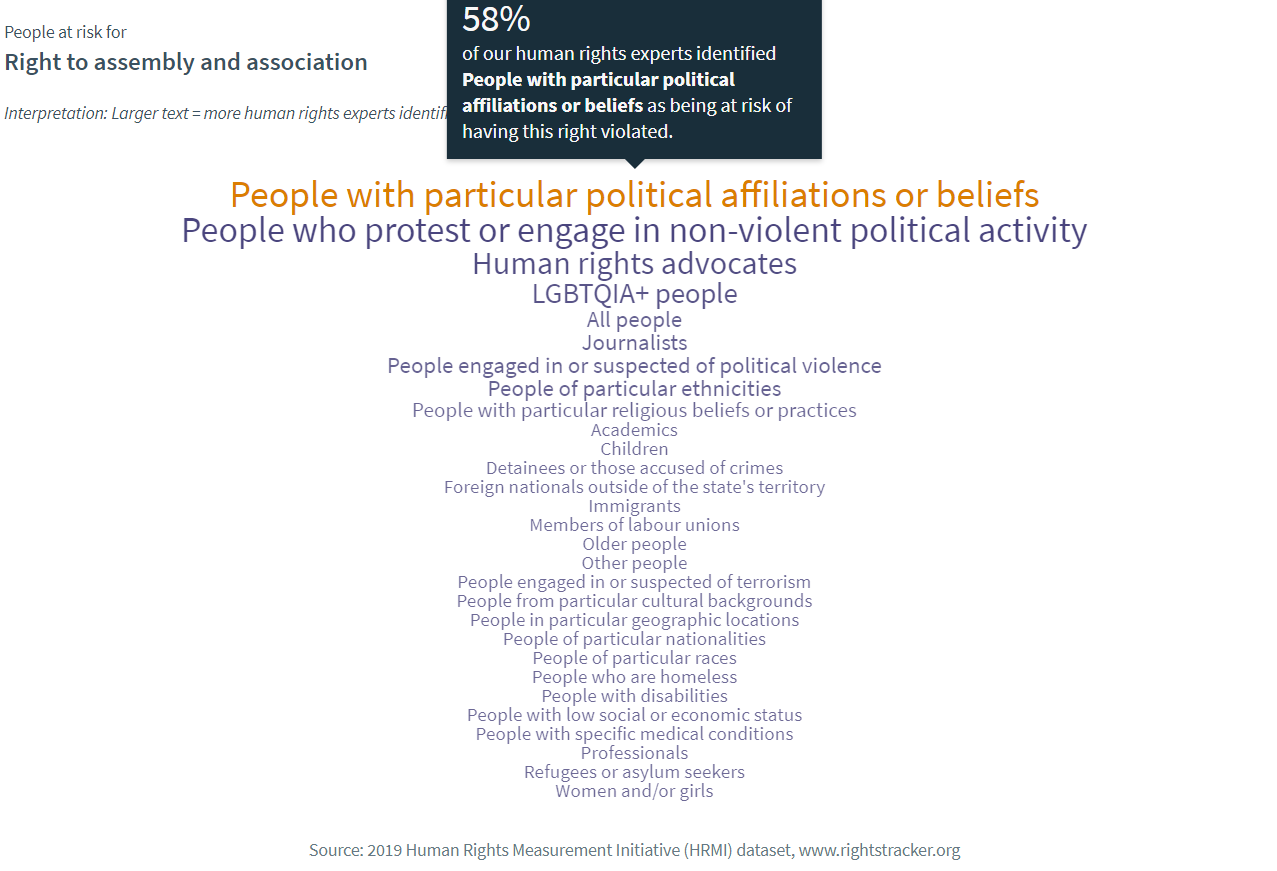
This word cloud shows that 58% of our human rights experts identified people with particular political affiliations or beliefs as being at risk of having their right to assembly and association violated.
Also, 53% of our experts identified people who protest or engage in non-violent political activity, 42% identified human rights advocates, and 32% identified LGBTQIA+ people.
Right to opinion and expression
Kyrgyzstan scores 5.4/10 for the right to opinion and expression.
Our experts identified the following people as at risk of having their right to opinion and expression violated:
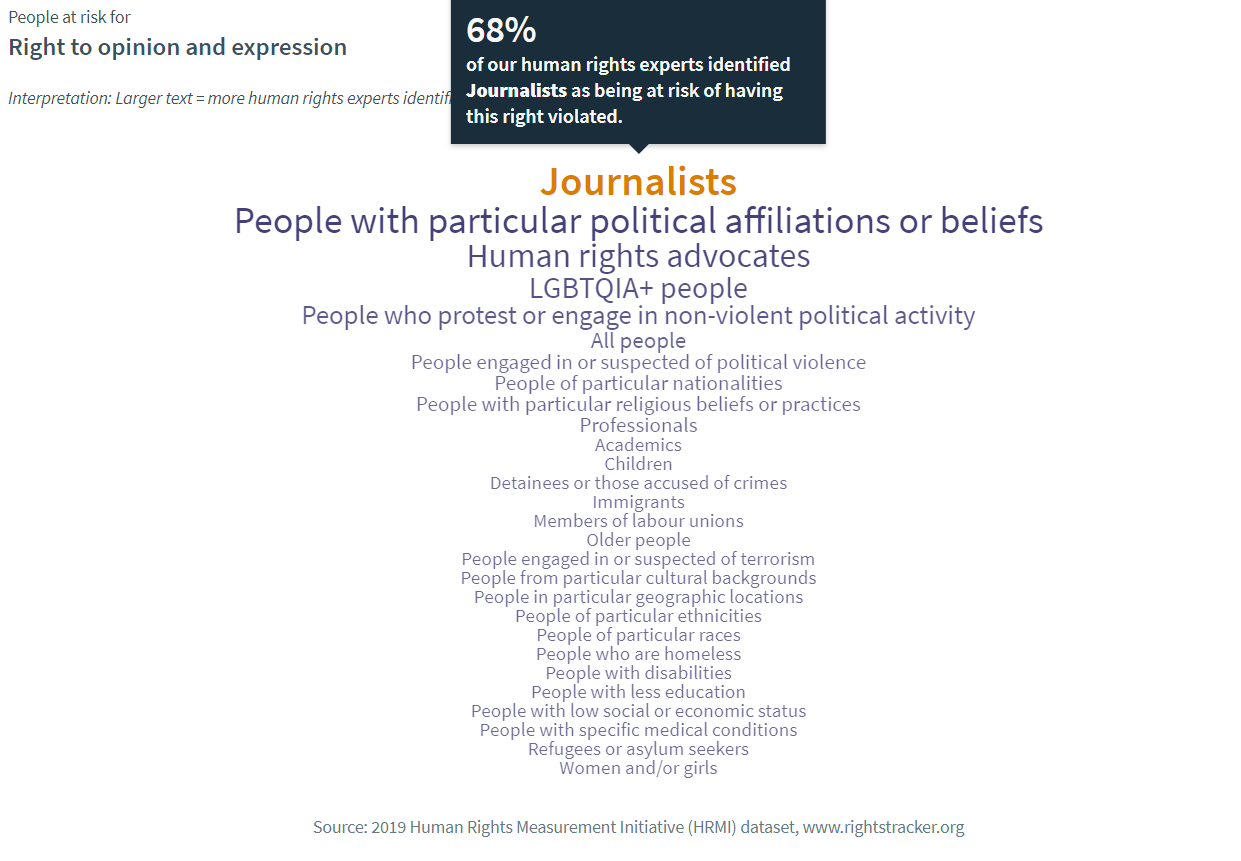
Experts showed concern for journalists’ rights, as 68% of them identified journalists as being at risk of having their right to opinion and expression violated.
This figure in particular raises serious concerns about the ability of citizens to freely disseminate and access information. It is in line with the recent reports of assaults on investigative journalists.
Reporters Without Borders ranked Kyrgyzstan 83rd in the world out of 180 nations in its World Press Freedom Index, stating that it is ‘[i]mproving, but could do better’. Of particular concern is Kyrgyzstan’s defamation legislation and high levels of self-censorship on certain subjects, including inter-ethnic relations.
The next four groups most commonly identified by our experts as at risk of having their right to opinion and expression violated are:
- people with particular political affiliations or beliefs
- human rights advocates
- LGBTQIA+ people
- people who protest or engage in non-violent political activity
Right to participate in government
Kyrgyzstan scores 5.8/10 for the right to participate in government.
Experts identified many groups as being at risk of having this right violated.
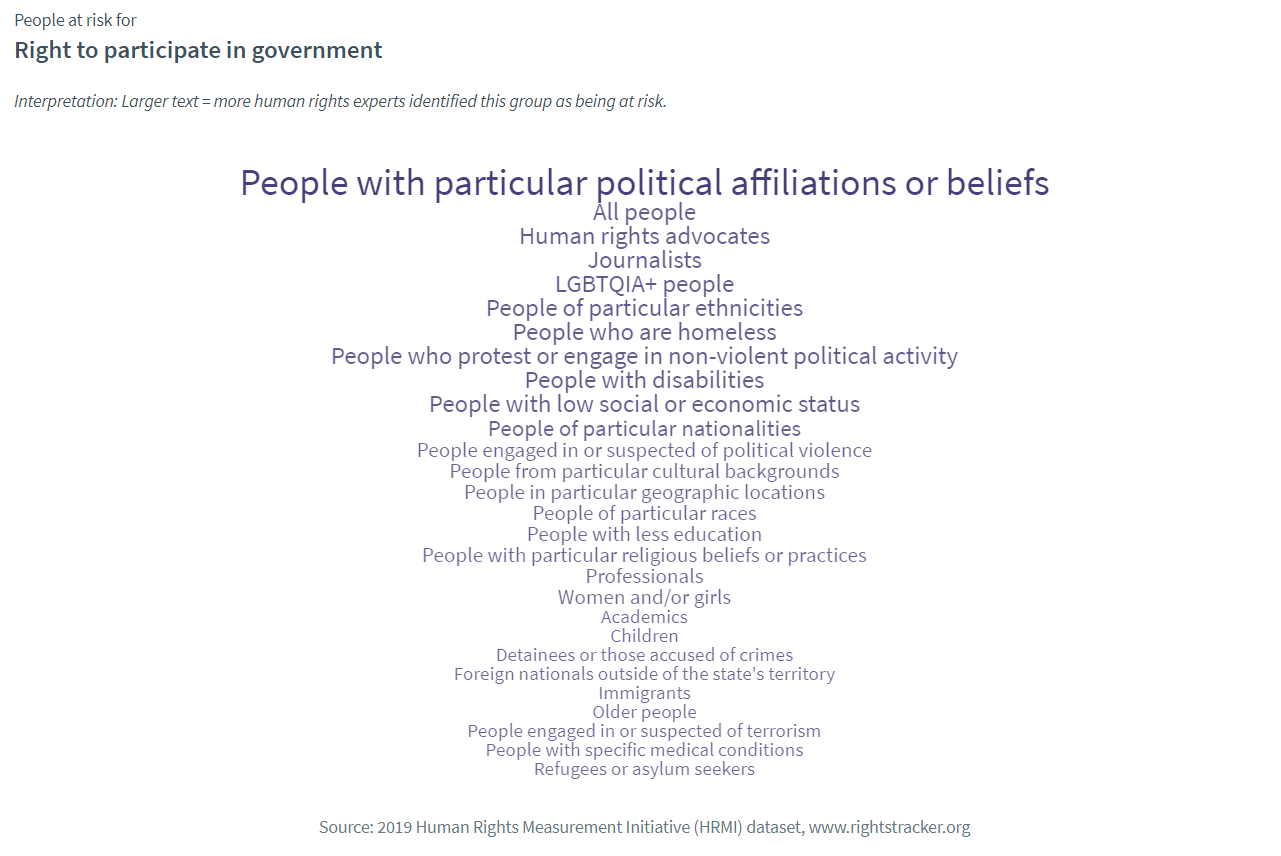
People with particular political affiliations or beliefs were identified by 58% of experts as being at risk.
Notably, 21% of our experts said that all people are at risk of having their right to participate in government violated.
Other targeted groups include homeless people, people with disabilities, and people with low social or economic status.
People of particular ethnicities and nationalities also ranked highly. For more information, read about the relationship between Kyrgyzstan’s ethnic violence and human rights.
Kyrgyzstan has improved its human rights
Although Kyrgyzstan has much work to do, it has improved its respect for empowerment rights in recent years. The graph below shows that the empowerment score increased from 2017 to 2018 by 0.8/10.
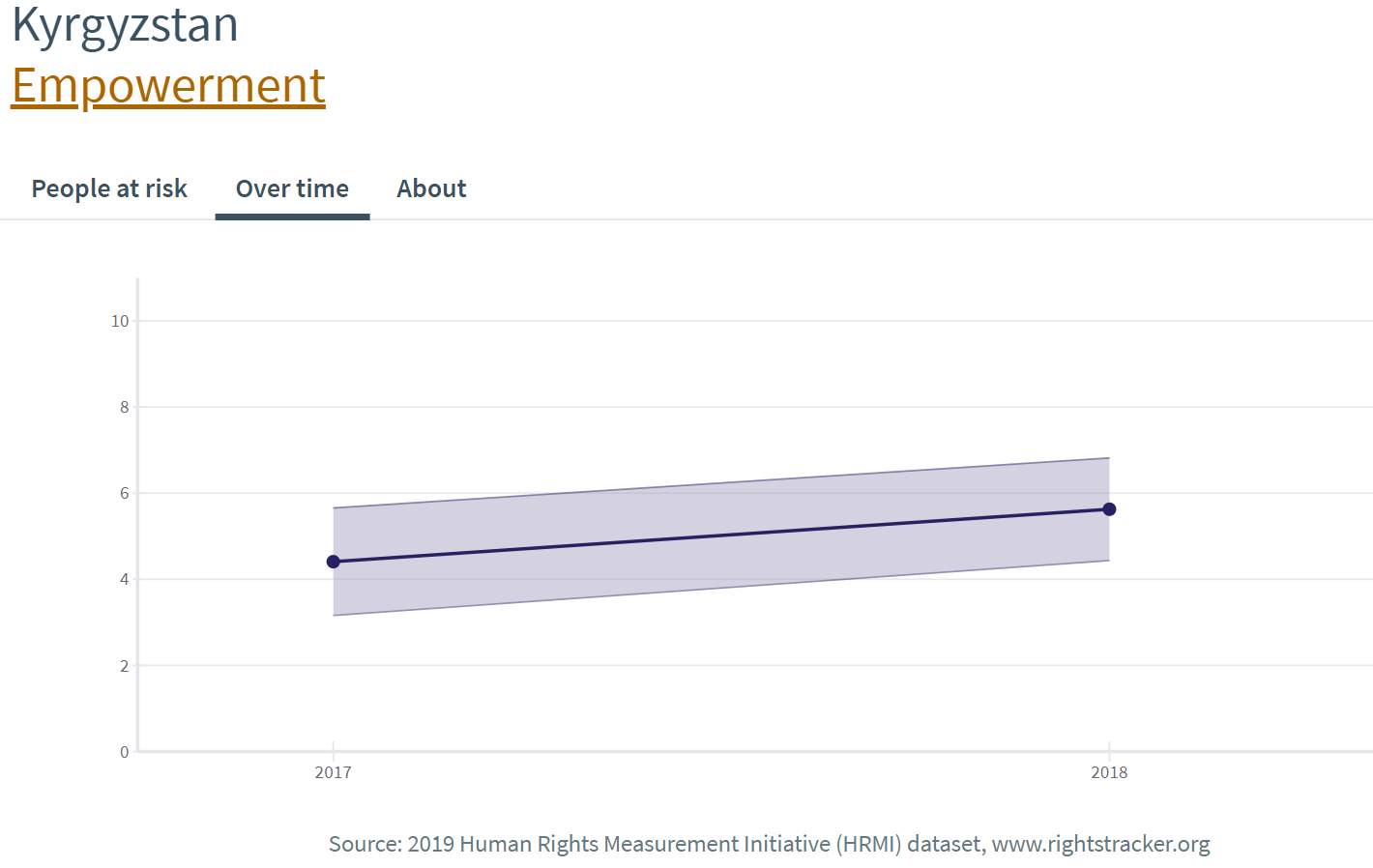
This improvement comes after Kyrgyzstan’s relatively peaceful presidential election in 2017.
Safety from the state
Kyrgyzstan’s safety from the state score of 7.7/10 suggests that a significant number of people are not safe from one or more of the following: arbitrary arrest, torture, disappearance, execution or extrajudicial killing. Execution and extrajudicial killing are both included in HRMI’s ‘freedom from execution’ score.
The individual scores of these rights are as follows:

These scores suggest that Kyrgyzstan needs to improve respect for all four of these rights.
Freedom from torture scored particularly poorly, at 3.9/10.
These are the people identified as at risk of being tortured:
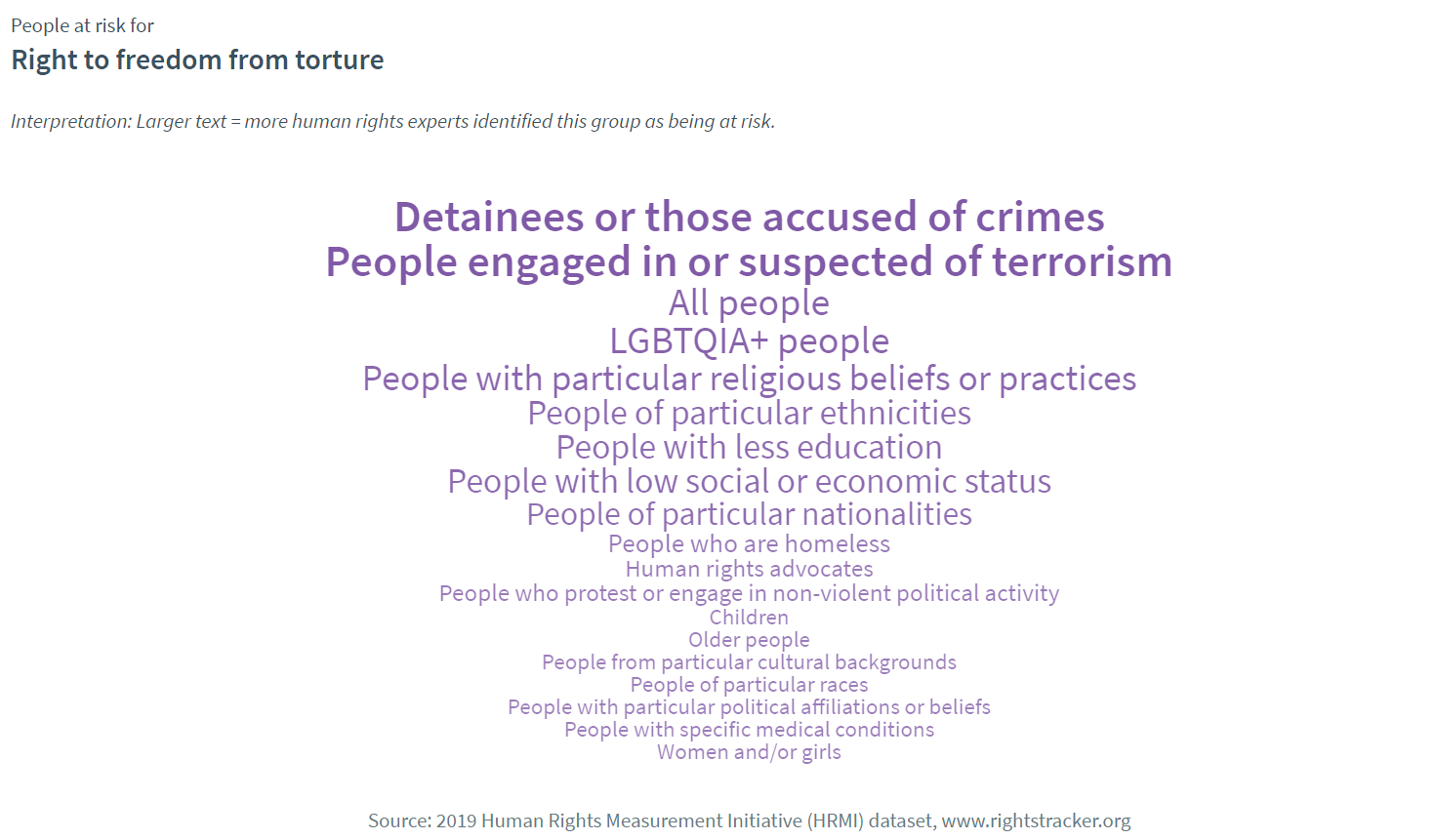
Detainees or those accused of crimes and people engaged in or suspected of terrorism were identified by 60% of human rights experts as at risk of being tortured.
Almost half (45%) of the experts said that all people are at risk of being tortured. The same percentage also identified LGBTQIA+ people as at risk.
Quality of Life rights
Quality of life rights (economic and social rights) include the rights to food, health, education, housing, and work.
HRMI produces two quality of life scores for each country, each score measuring against a different benchmark.
The global best benchmark scores all countries against the same high standard.
By adjusting for a country’s income, HRMI also scores countries against the level they could be expected to be performing at, given their income level.
In the graph below, the income adjusted benchmark has been selected.
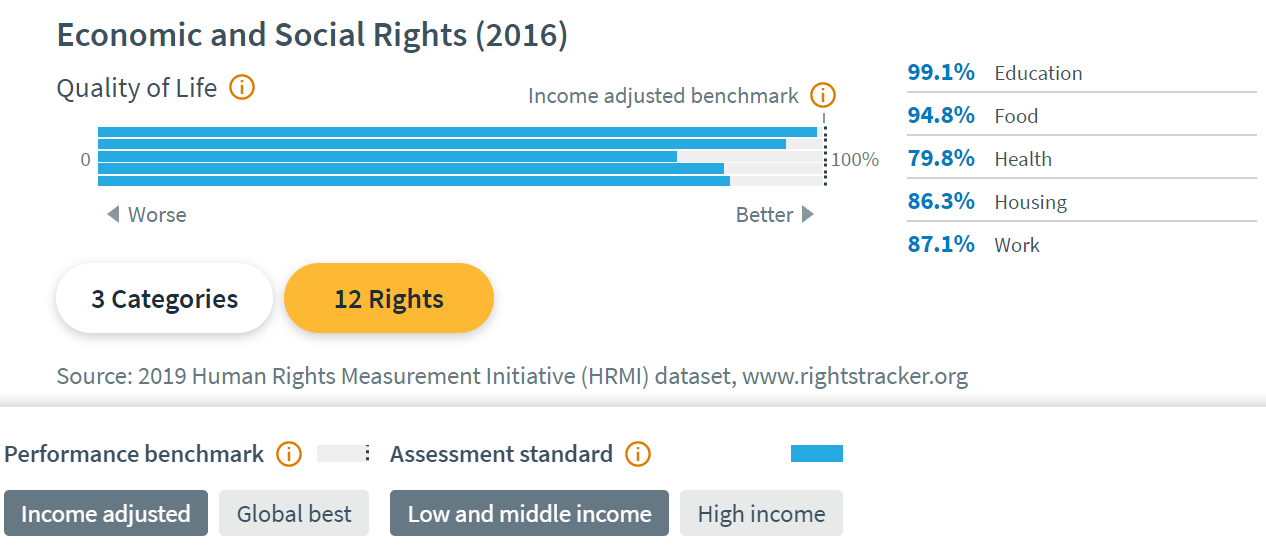
Kyrgyzstan scores 89.4% on quality of life when scored against the ‘Income adjusted’ benchmark. This score takes into account Kyrgyzstan’s resources and how well it is using them to make sure its people’s quality of life rights are fulfilled.
This score tells us that Kyrgyzstan is only doing 89.4% of what should be possible right now with the resources it has. Since anything less than 100% indicates that a country is not meeting its current duty under international human rights law, our assessment is that Kyrgyzstan has some way to go to meet its immediate economic and social rights duty.
Kyrgyzstan’s lowest quality of life score is for the right to health, at 79.8%.
Compare Kyrgyzstan’s right to health score with other countries’ scores here.
When asked to provide more context about who was least likely to enjoy their economic and social rights in 2018, our respondents mentioned the following:
- Low income families where children are forced to work. Children working is an impediment to education
- Internal migrants experience restrictions on pre-school and school education
- Roma-Lyuli children have difficulty enjoying their right to education
- People working in sewing workshops and the mining industry have trouble enjoying their rights to fair and just working conditions
- Internal migrants
- People without identity documents
- People who are previously convicted criminals
- People with low socio-economic status
- Unemployed people
- Young people
- Women
- Children, especially orphans
- Asylum seekers
- Elderly people
- People of certain religions
- Ethnic minorities such as Dungans and Uzbeks
- Lyuli, who are known as eastern gypsies (mughats)
- Internal and external migrants
- People with disabilities
- Homeless people
- People with HIV
- People with low income
- People with low educational attainment
- Retired people
- People with tuberculosis
- Independent activists
See here for more information on who was identified as at risk for each quality of life right.
Summary of Kyrgyzstan’s human rights performance
Our data show that Kyrgyzstan has a long way to go before its people can have full enjoyment of their civil and political rights.
There were several groups of people who were consistently identified by high numbers of our experts as being at risk of having these rights violated, including people with particular political affiliations or beliefs, people who protest or engage in nonviolent political activity, LGBTQIA+ people, human rights advocates, and journalists. Furthermore, all people were frequently identified as being at risk.
Our data also show that Kyrgyzstan is not meeting its quality of life rights obligations under international law, and is doing particularly poorly on the rights to health, housing, and work.
While Kyrgyzstan has some way to go in respecting human rights, its relatively peaceful presidential election in 2017 gives hope that the nation can make lasting changes.
Thanks for your interest in HRMI. To further explore our human rights data for Kyrgyzstan, please visit our Rights Tracker, where you can find data by country or right.


